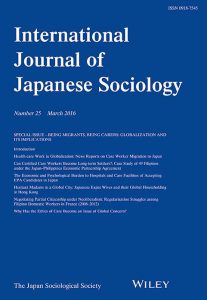Blinded by narcissism?
 In the Freudian Era, Narcissism was a central psychiatric concept and diagnosis. In the last several months, the likelihood that the American Psychiatric Association will drop this diagnosis from it’s new, 5th edition of The Diagnostic and Statistical Manual of Mental Disorders (DSM) has been the subject of a string of articles in prominent newspapers and other news outlets including the New York Times and NPR. Though the debate is one about professional discourse and diagnosis, it extends well beyond this realm and begs the question of whether or not this change represents a larger trend in the US wherein Americans no longer see putting themselves before others and thinking of themselves as better and more capable than others (even with little evidence to back it up) as a problem.
In the Freudian Era, Narcissism was a central psychiatric concept and diagnosis. In the last several months, the likelihood that the American Psychiatric Association will drop this diagnosis from it’s new, 5th edition of The Diagnostic and Statistical Manual of Mental Disorders (DSM) has been the subject of a string of articles in prominent newspapers and other news outlets including the New York Times and NPR. Though the debate is one about professional discourse and diagnosis, it extends well beyond this realm and begs the question of whether or not this change represents a larger trend in the US wherein Americans no longer see putting themselves before others and thinking of themselves as better and more capable than others (even with little evidence to back it up) as a problem.
In her book, Generation Me: Why Today’s Young Americans are More Confident, Assertive, Entitled – and More Miserable than Ever Before, Jean Twenge somewhat satirically describes an increasing focus on the importance of self-esteem in American Society. From birth, she argues, children are steeped in the notion that they are important just for being them and that they must make themselves feel good at all costs. Ultimately, Twenge argues, this rather ironically leads to more unhappiness and even mental illness, as the current generation of young adults does not learn how to live in the real world. Their entire educational experience can be captured by several of Twenge’s examples: children receive trophies just for doing their best, rather than for being the best player or the hardest worker on the team; they are content with C grades because teachers tell them they’re good no matter what their grades are; they earn pretty stickers for effort rather than genuine achievement. While there are some wonderful outcomes of the self-esteem movement (for a description of the functions and theories of self-esteem, see the linked article below) that started with the Baby Boomer generation – namely that kids do feel more liberated and, in moderation, self-esteem is certainly beneficial – Twenge argues that the level of self-esteem present in today’s kids is harmful to both them and society more broadly. Ultimately, over-inflated self-esteem can result in narcissistic tendencies that lead to much more than feeling overly good about oneself; narcissism can ruin relationships, cost people their jobs, and even lead to increases in violence.
For the last two years, I have assigned my freshman writing students a section of Twenge’s book, along with a first-day-of-class assignment about whether today’s teens and young adults are, in fact, self-centered narcissists. In short, did Twenge’s argument make sense to them? In sum, it does. However, they appear to have little to no reaction to it. Yes, they mostly agree, they are more self-centered than previous generations, self-esteem is a part of their common vocabulary, and they are capable of far less than generations before them. In other words, they are aware that they are (at least many of them) unprepared for the “real world” at least in part because they’ve always been told they’re great or that just making an effort is enough to succeed in life. They know less about the world, are able to perform fewer skills, etc. Of course, I’m not sure the story is this black and white or that most of what Twenge dubs “Gen Me” is incapable of functioning, and I can see several flaws to Twenge’s argument, but it’s interesting that the members of this generation seem to believe this. Further, none of this is particularly upsetting to them. After hearing from my students, I began to wonder if their non-reaction is at least partly because we’ve become blinded to narcissism and its ill effects.
There are a number of intersecting issues here, but the two that jump out at me are as follows: 1) people may in fact be so narcissistic today that narcissism doesn’t seem like such a bad thing, mostly because it masquerades as self-confidence and/or self-esteem, which are such central concepts to our pseudo-psychologically oriented society that we unquestioningly think they are a good thing; 2) The American Psychiatric Association, which controls what is considered a disorder or illness by listing the “legitimate” illnesses in DSM is also steeped in American conceptions and does not see Narcissism as such a problem. After all, it is so prevalent in patients that it’s no longer surprising (look at the financial crisis and the housing crisis — in many ways all results of thinking you’re better, stronger, more capable and going to get away with more than you can/should.) However, there is also a professional/power impetus for removing the term from the manual as well: this move aims to wipe out the lingo of the Freudians and Narcissism was perhaps the central term in psychoanalytic theory and treatment. In the last several decades, the APA has done everything in its power to remove Psychoanalytic or Freudian language from DSM and from psychiatric discourse more generally. The APA, now favoring biological approaches to treating the gambit of mental illness, has repositioned itself as a hard science, one that seeks to disassociate from the accusations toward Psychoanalysis that is is unscientific, uncertain and subjective. In other words, Psychiatry’s goal over the last several decades has been to be seen as a part of the larger field of medicine, one that relies on facts and data, rather than psychological theories and feelings. Perhaps this change in APA discourse is representative of both psychiatric culture and larger American culture.
We seem to be more narcissistic than ever and also less likely to recognize this as a problem, both as laypeople and as professionals. We seem to be faced with a combination of the push away from Freudian language and a possible ubiquity of symptoms that once would have been identified as disordered. On the other hand (and an issue that should be explored more in depth), if so many people are narcissistic, then it isn’t, in fact, a mental disorder, but rather a normality, even if a highly problematic one. If this is the case, narcissism really shouldn’t be in DSM. Mental disorders are meant to be anomalies – if everyone is ill, then the very definition of pathology must be questioned (as it is, for instance, by Allan Horwitz in his description of the social construction of mental illness and in his writing on depression). Perhaps it actually makes sense to remove narcissism from DSM if so many people could be diagnosed with this condition that it’s almost absurd. Whether it should be a disorder or not, the disappearance of this disorder reinforces the importance of thinking about the role of narcissism in American Society.
![]() It’s all about Me: But is Narcissism a Disorder?
It’s all about Me: But is Narcissism a Disorder?
![]() A Fate that Narcissists will Hate: Being Ignored
A Fate that Narcissists will Hate: Being Ignored
![]() Self Esteem in The Blackwell Encyclopedia of Sociology
Self Esteem in The Blackwell Encyclopedia of Sociology
![]() Social Construction of Mental Illness in The Blackwell Encyclopedia of Sociology
Social Construction of Mental Illness in The Blackwell Encyclopedia of Sociology




1467-7660/asset/DECH_right.gif?v=1&s=a8dee74c7ae152de95ab4f33ecaa1a00526b2bd2)
1754-9469/asset/society_affiliation_image.gif?v=1&s=9197a1a6ba8c381665ecbf311eae8aca348fe8aa)
1 Response
[…] here: Blinded by narcissism? » Sociology Lens Share Latest News adults, allan-horwitz, anomalies, definition, depression, horwitz, […]